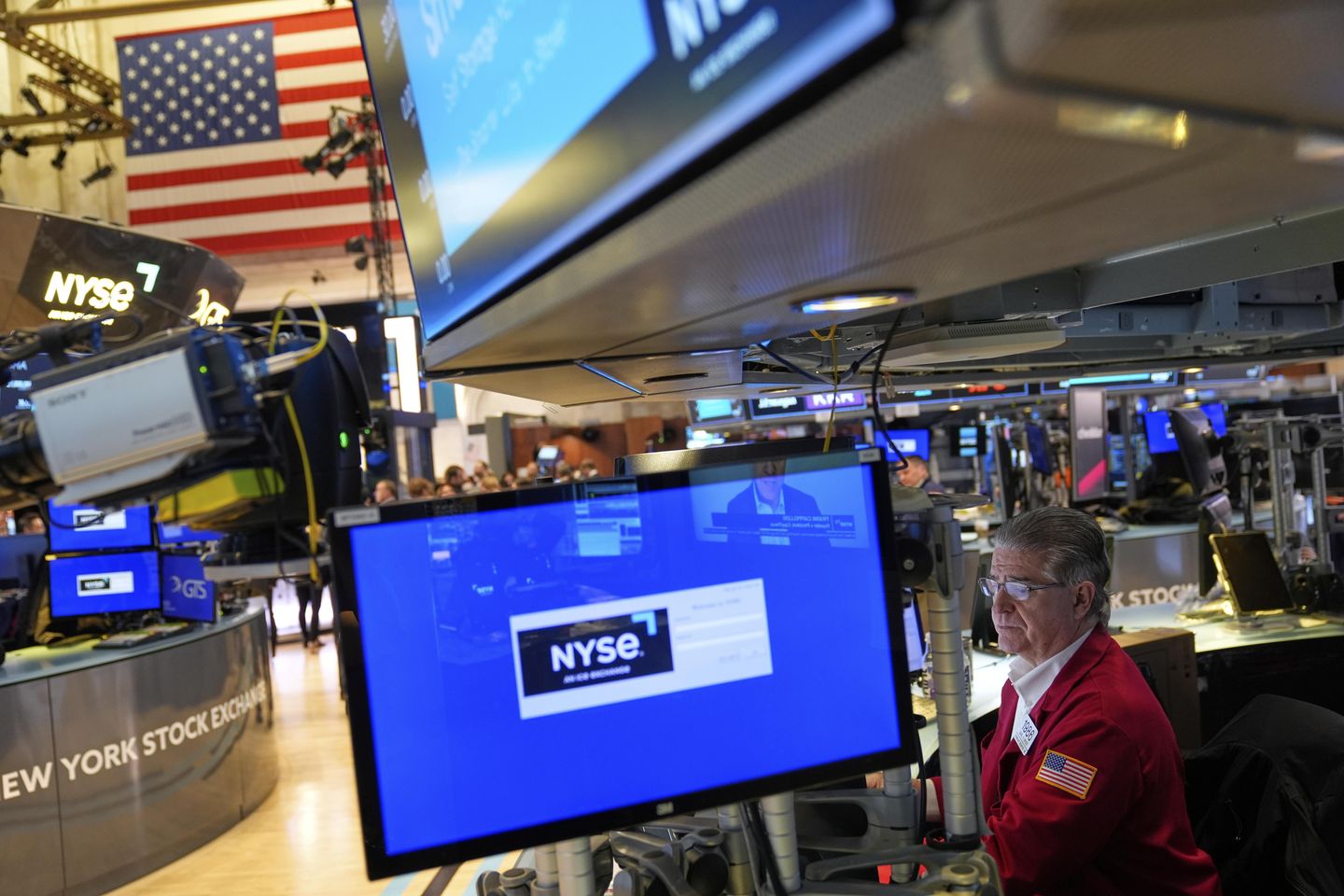
Stocks on Wall Street plummeted Thursday as investors weighed President Trump’s aggressive tariff plan and the potential risk of a global trade war.
The Dow Jones Industrial Average opened down 1,200 points, 2.6%, while the S&P 500 was down more than 3% and the Nasdaq dropped over 4%.
Companies with a global footprint, such as Nike and Apple, were down, alongside companies that rely on imports.
Mr. Trump announced a 10% baseline tariff on all imports and higher, reciprocal levies on dozens of nations that impose high levies or trade barriers on U.S. goods entering their countries.
The president said he was being lenient and the U.S.-imposed tariffs were roughly half of what other nations charged through tariffs and other trade barriers.
The Trump administration says the levies are a long-overdue restructuring of a global trade order stacked against the U.S. and its workers. They say other countries tap into America’s spending power but shun U.S. producers who want to sell their wares within their borders.
SEE ALSO: Trump imposes a 10% baseline tariff, reciprocal tariffs on ‘worst offender’ nations
“This is the reordering of fair trade,” Commerce Secretary Howard Lutnick said Thursday on CNBC’s “Squawk Box.” “It’s about those non-tariff trade barriers. That’s what we are addressing.”
“I expect most countries to start to really examine their trade policy towards the United States of America, and stop picking on us,” he said. “Stop saying that we can’t sell our corn to India, stop saying that we can’t sell our beef anywhere. Just stop treating us so poorly.”
Tariffs are a tax or duty paid by importers on the goods they bring in from foreign markets. Mr. Trump says tariffs are a great way to force companies to return to America or keep their operations in the U.S., employ American workers and create revenue to fund domestic programs.
Foreign countries don’t pay the tariffs directly to the U.S. Treasury. In many cases, U.S. companies will pay the levies, and they might pass on at least some of the cost to consumers through higher prices.
Asian officials were stunned by the heavy tariffs and vowed to confront Mr. Trump and consider retaliation. Likewise, the EU signaled it would be ready to retaliate if negotiations failed.
The American Apparel & Footwear Association warned that competing tariffs could snowball “into a growing — and potentially crushing — burden on American businesses and hardworking American families.”
SEE ALSO: Trump orders closure of loophole on Chinese shipping on May 2
“It is vital that our government’s actions be aligned so that they benefit both the crucial exports of American-grown and American-manufactured goods as well as U.S. imports of safe, affordable, and innovative consumer products,” AAFA President and CEO Steve Lamar said.
Sen. Chris Murphy, Connecticut Democrat, said Mr. Trump is using tariffs as a political tool, not a form of economic policy.
The senator said Mr. Trump would use potential relief from the tariffs to gain fealty from private industry.
“Independent industry has power. The tariffs are Trump’s tool to erode that independence,” Mr. Murphy wrote on X. “Now, one by one, every industry or company will need to pledge loyalty to Trump in order to get sanctions relief.”






![Trump's Admin Guts Another ‘Rogue Government Agency with Zero Accountability’ [WATCH]](https://www.right2024.com/wp-content/uploads/2025/03/Trumps-Admin-Guts-Another-‘Rogue-Government-Agency-with-Zero-Accountability-350x250.jpg)
![‘We All Owe Him (Elon) a Huge Debt of Gratitude’ [WATCH]](https://www.right2024.com/wp-content/uploads/2025/03/‘We-All-Owe-Him-Elon-a-Huge-Debt-of-Gratitude-350x250.jpg)









